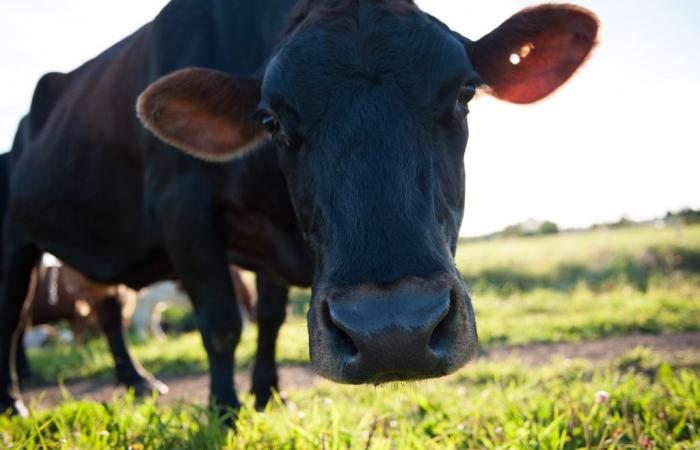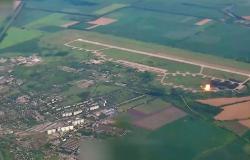There is no more Canadian cow’s milk in 1608 cheese, whose brand image is precisely a drawing of a representative of this rare heritage breed. The last herd, that of the Hengil Farm in Saint-Hilarion, left the region a few months ago, at the very moment when significant scientific advances confirm the uniqueness of this emblematic animal.
La Terre de chez nous announced it first, then the news was picked up by the Coops de l’information a few days ago. Mario Duchesne, from the Association de mise en valeur de la race bovine Canadienne (AVRBC), deplores the fact that his favorite animals are described as “difficult” by some and wants to set the record straight.
“I think we’re mixing a nervous temperament with a vigilant temperament of a rustic cow. They came from a system of milking at the stall, from a stable environment. In addition to the trip, there was the change of management for free stalling in a milking parlor. Out of 50 animals, 13 died, but it’s not a breed problem, it’s a hardiness problem. If you change their habits, they become alert. We can’t judge the breed with that event,” says Mario Duchesne.
He describes the Canadian as “a separate breed, closer to a wild animal,” which is confirmed by recent advances in genomics.
“The Canadienne is not inbred, it has the highest genetic diversity of all breeds and no close relatives of any dairy or beef breed, it is as far from them as the zebu is! We didn’t know that!” says the man who has been closely interested in the animal since the 2010s.
Steve Tremblay, from Ferme Hengil, tried to find a buyer in Charlevoix, but Laiterie Charlevoix could not ensure the continuity of the agreement that bound it to the producer, which was a higher purchase price for this unique milk.
“They have the right to say ‘we don’t want to pay that anymore’, but it turned out that the Canadienne is not a good cow and that’s not the right thing to say. We know that she is not conventional, she will never compete with the Jersey or the Holstein, but it’s not true that the milk is not different. It harms the breed and that insults me,” says Mario Duchesne.
The fact that the cow is less profitable is well-known. “We know that it takes a premium, added value to make it interesting. The dairy was a good player for years, but now, it’s fizzling out. We understand them, we don’t blame them, but that doesn’t mean that they no longer find it interesting, that there can’t be profitable business models,” adds Mr. Duchesne.
Ferme Phylum, in Lévis, which acquired Mr. Tremblay’s herd, is taking a chance. A young company in the Outaouais is also banking on the Canadian cow. The Pied-de-vent cheese factory in the Magdalen Islands is known for the quality of its cheeses, made from the milk of this cow that allowed the first settlers to survive the harsh Quebec winters.
“Today, researchers are interested in it. Université Laval and McGill University are looking into it. We want to position it in regenerative agriculture. It must be a little more profitable, consistent. We will do it differently, but the Canadian can be profitable in its marginality!” concludes this fervent defender of the national agricultural heritage.






